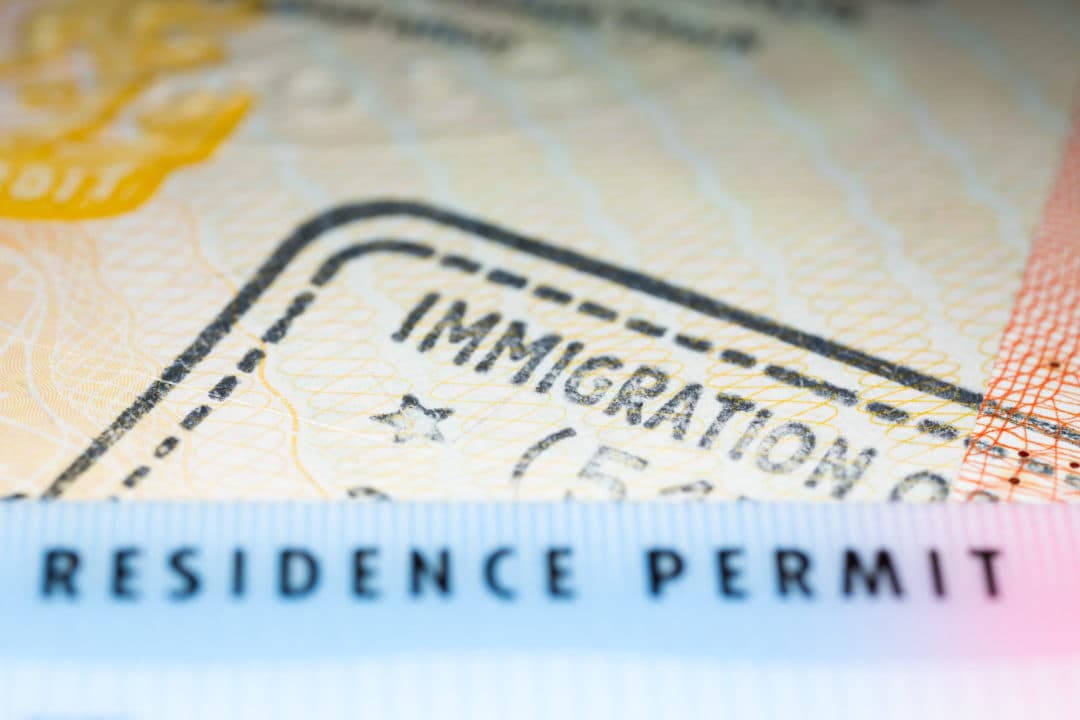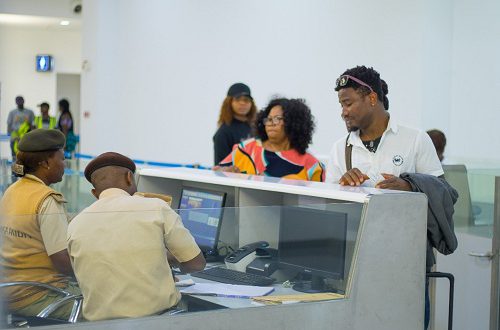Imagine how good it would feel to get permanent residency and feel like you’ve accomplished something. It’s a big step forward that brings security and new chances. You might be able to lose that status, though. This worry is especially important for many immigrants and other people who are trying to understand the complicated immigration law. Is it possible for Immigration to cancel Permanent Residence? Let’s look at the circumstances in which you can cancel your permanent residency, the legal repercussions, and what you need to know to protect your position.
Can Immigration Cancel Permanent Residence?
Yes, immigration officials have the authority to cancel permanent residence for a variety of reasons, including criminal conduct, fraud, extended absences, violation of residency terms, and security concerns. According to the Migration Policy Institute, fraudulent applications and criminal conduct are among the leading causes of permanent resident status cancellation in various countries, including the United States, Canada, and the United Kingdom. Understanding these dangers and complying with residency rules is critical for permanent residents to keep their status.
When Can Immigration Cancel Permanent Residence?
Immigration officials have the authority to revoke permanent residency under specific instances. Understanding these reasons is critical to preserving your status.
#1. Criminal Activities
Engaging in criminal actions may threaten your permanent status. Serious offenses, especially those involving moral turpitude, might result in deportation. Fraud, drug trafficking, and violence are among the most closely studied crimes, according to the United States Citizenship and Immigration Services.
#2. Fraud or misrepresentation
Providing inaccurate information throughout the application procedure will result in cancellation. This involves falsifying paperwork or lying about your background. The Migration Policy Institute found that fraud is a leading source of residence revocation.
#3. Extended Absences from the Country
Permanent residents are required to live largely in the country that granted them status. Prolonged absences may be considered abandonment of residency. The United States has particular criteria that regard absences of more than six months to be potentially hazardous.
#4. Violation of Residency Condition
Failure to comply with the conditions of your residency, such as keeping a job or meeting family sponsorship criteria, might result in revocation.
#5. Security Threats
Being designated as a threat to national security may cancel permanent residency. This includes supporting terrorist organizations or engaging in activities that endanger public safety.
How Do Revocation Processes Differ Between Countries?
The procedure for revoking permanent status differs according to the country’s immigration laws and practices. Here are a few general differences:

- United States The revocation process entails court proceedings in which the permanent resident has the opportunity to defend the charges. An individual may obtain a Notice to Appear in Immigration Court, where an immigration judge will decide their destiny. If a judge orders deportation, the individual may appeal the ruling.
- Canada:. Permanent residents may lose their status through a process known as a “admissibility hearing.” These hearings are conducted by the Immigration Division of the Immigration and Refugee Board of Canada. If an individual is declared inadmissible, they can file an appeal with the Immigration Appeal Division.
- The European Union: Each EU country has its own procedures, but in general, revocation consists of administrative reviews followed by court proceedings if the resident files an appeal. Countries such as Germany and France demand thorough investigations and provide residents the opportunity to dispute the decision.
- Australia: The Department of Home Affairs administers revocations. Individuals are notified of the intention to cancel their visas and allowed to respond before a final decision is made. They can appeal the decision to the Administrative Appeals Tribunal.
How Do Residency Revocations Affect Family Members?

The revocation of a primary applicant’s permanent residency can have a substantial impact on their family members who also have dependent resident status. Here’s how.
Advertisements
- Dependent Status: Family members, such as wives and children, who received residency through the primary applicant may also risk revocation. This is especially important if their residency is closely related to the principal applicant’s status.
- Deportation: Family members may be included in deportation proceedings, resulting in their departure from the country. This might cause problems in children’s lives, especially if they are in school or have lived in the country for a long time.
- Separation: In certain situations, just the primary applicant may be deported, resulting in family separation. To maintain the family unit, the remaining family members may have to choose between staying and returning to their home country.
- Legal and Financial Strain: Families may face major legal and financial obstacles, such as legal representation expenses and income loss if the primary earner is deported.
Legal Aspects of Residency Revocation

Revocation of permanent residency entails major legal repercussions that can have a significant impact on a person’s life. Understanding these ramifications is critical for successfully navigating the process.
Deportation Procedure
Once your residency is removed, you may face deportation proceedings. This legal process consists of numerous steps:
- Notice To Appear: You will receive a Notice to Appear (NTA) before immigration court.
- Legal Hearings: You will have the opportunity to challenge the revocation in court. According to the American Immigration Council, you have the right to legal representation during these hearings.
- Decision: After hearing the evidence, the immigration court will make a decision. If the ruling is unfavorable, you may appeal.
Re-entry Bans
If your permanent residency is revoked, you may be unable to re-enter the nation. These bans vary in length.
- Five-Year Ban: Typically used for less serious offenses or technical infractions.
- Ten-Year Ban: Common for more serious offenses, such as major fraud.
- Lifetime Ban: Issued in circumstances of serious criminal conduct or multiple immigration infractions.
The Impact on Family Members
The revocation of your residency might also affect your family members, particularly those who derived their residency status from you. They may face:
- Similar Revocation Proceedings: Family members may likewise have their residency revoked.
- Deportation: They may be included in the deportation procedure if their situation is closely related to yours.
- Disruption: Significant personal and financial upheaval, compromising family stability and togetherness.
How To Avoid Residency Revocation
Maintaining your permanent status requires strict obedience to the country’s laws and regulations. Here are some ways to avoid issues:
#1. Stay Aware
- Monitor Changes: Stay up to current on immigration laws and practices. Countries frequently change their immigration regulations, which can influence your status.
- Subscribe for updates: Subscribe to official immigration updates or speak with an immigration lawyer to stay up to date on any changes.
#2. Legal Compliance
- Obey Laws: Comply with all legal duties, such as paying taxes and avoiding illegal activity.
- Seek Legal Assistance: If you have any legal concerns or uncertainties, consult with an immigration lawyer. Proactive legal guidance can help you avoid unintentional infractions.
#3. Travel wisely
- Limit Absences: Avoid long-term absences from the nation. Long-term stays abroad may be interpreted by immigration authorities as a loss of residency.
- Re-entry permission: If you will be traveling for an extended period, ask for re-entry permission. This certificate states that you intend to keep your residency despite your absence.
#3. Accurate Documentation
- Honesty in Applications: Always include accurate and truthful information in your applications and renewals.
- Corrected Errors Promptly: If you uncover an error in your paperwork or applications, notify the immigration authorities immediately to avoid future problems.
Understanding these legal ramifications and techniques can help you obtain and keep permanent residency, providing stability for you and your family.
Advertisements
As a permanent resident, I’ve learned the value of keeping educated and complying. A close buddy had his passport revoked owing to an extended absence, emphasizing the need to understand travel limits. This incident strengthened my dedication to keeping correct documents and engaging with legal professionals as needed.
What Legal Options Do I Have If My Permanent Residency Is Renewal?

If your permanent residency is revoked, you have several legal avenues to challenge the decision:
- Appeal the judgment: Most countries allow citizens to appeal a revocation judgment. This step normally includes presenting your case to an immigration judge or appeals panel, where you can provide facts and arguments to back up your claim.
- Judicial review: If the appeal fails, you can request a judicial review. This approach involves a higher court looking at the legality of the decision-making process rather than the facts of the case. It focuses on whether immigration officials followed necessary processes and upheld legal norms.
- Seek Legal Representation: Hiring an experienced immigration attorney is critical. They can guide you through the complex legal process, obtain relevant documentation, and represent you in hearings and appeals.
- Submit New Evidence: Providing fresh or previously unavailable evidence to support your claim can be essential. This may include proof of residency compliance, character references, or verification of personal and family ties to the nation.
Can a Former Permanent Residents Reapply for Residency Following Revocation?
Yes, a previous permanent resident can reapply for residency following revocation; nevertheless, there are essential considerations and potential hurdles.
- Cooling-off Period: Many nations require a waiting period before a previous resident can reapply. For example, the United States frequently imposes a 10-year ban on persons deported for immigration crimes.
- Rectifying Issues: Addressing the causes of the first revocation is critical. This could include proving good behavior, addressing legal difficulties, or submitting further papers to verify eligibility.
- Legal Assistance: Working with an immigration lawyer can significantly improve your prospects of a successful reapplication. They can assist with preparing a detailed application, resolving previous concerns, and navigating legal procedures.
- Country-Specific Policies: The reapplication process and likelihood of approval varies by nation. Some countries may have more permissive policies, but others may impose harsher requirements on former residents.
Template to Maintain Permanent Residency
Here’s a basic template to help you keep track of your residency requirements:
Key Takeaways
- The most common reasons for residence revocation are criminal behavior, fraud, and extended absences.
- Legal ramifications include deportation and re-entry restrictions.
- It is critical to stay informed and comply with the law.
- Proper recordkeeping and legal guidance can help avert problems.
- Keep track of your immigration status and policy changes.
Conclusion
Maintaining permanent residency necessitates vigilance and conformity with immigration regulations. You can protect your status by recognizing the reasons for potential revocation and taking preventative measures to avoid problems. Always stay informed, keep proper documents, and seek legal guidance as needed.
Is it possible for immigration to cancel permanent residence? Yes, but with the right knowledge and attention to legal criteria, you can maintain your status.
Have you or someone you know struggled to preserve permanent residency? How did you manage it? Please share your experiences and tips in the comments section below.
Related Articles
- Can Immigration See Expunged Records? Expert Insights on Immigration Background Checks
- Can Immigration Sponsorship Be Revoked? What Immigrants and Sponsors Need to Know
- DNA Test for Immigration: Costs, Procedures, and Legal Implications
- Can Immigration Stop You at an Airport? A Guide for International Travelers
- Canadian Immigration: How to Japa From Naija to Canada
References
Advertisements






